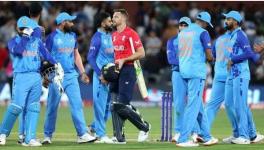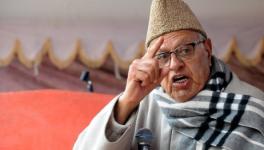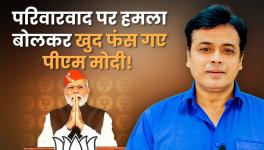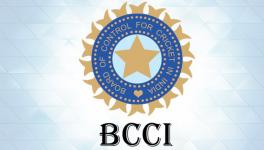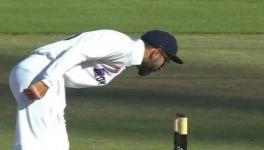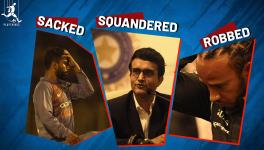Exclusive | Rs. 830.32 Crore — the Indian Cricket Board’s Legal Budget
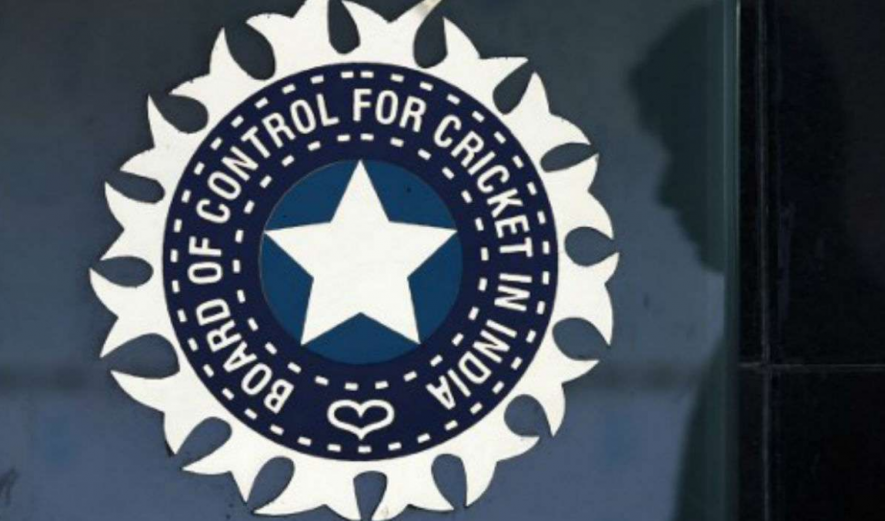
The Board of Control for Cricket in India (BCCI) has been involved in a spate of cases in various courts in the country with several of them having gone into arbitration.
The Indian cricket board is mired in a spate of litigation and has been quietly budgeting colossal amounts to meet its ever-increasing legal expenditure. Since 2014, the Board of Control for Cricket in India (BCCI) budgeted at least Rs.830.32 crore to fight court cases, particularly the one in the Supreme Court that triggered revolutionary administrative reforms in Indian cricket, and implement its orders.
The budgeting of Rs.830.32 crore, in BCCI’s words “…to comply with the Supreme Court order…” has been located in its confidential documents. This amount, broken into two parts, has neither been mentioned in the BCCI’s balance sheet of 2016-17 — the latest accounts that are available on the Board’s website — nor in the 2017-18 and 2018-19 balance sheets that this reporter has exclusively accessed. By the way, according to its 2018-19 balance sheet, the BCCI was worth a massive Rs.14,489 crore.
Out of Rs.830.32 crore, Rs.330.32 crore was “earmarked” in 2014 and a “provision” of Rs.500 crore was made later, particularly for the Indian Premier League (IPL) betting-fixing scandal that rocked Indian cricket in 2013. It goes without saying that this amount has either been spent on lawyers or would be paid to them in future as the case lingers on.
Apart from the 2013 IPL betting-fixing scandal, the BCCI has been involved in a spate of cases in various courts in the country. Several cases have gone into arbitration – most prominent of these being the ones involving the erstwhile IPL franchises Deccan Chargers and Kochi, the World Sports Group, and Sahara India. The BCCI has lost some and won some of these while the others are still hanging.
Also Read | How BCCI Avoided Paying Tax on Profits it Earned by Hosting IPL Tournaments
Also, there are several income tax and service tax matters that need resolutions. Sometime ago, the BCCI made a provision of Rs.160 crore to deal with income tax issues. Besides, it has, until March 31, 2019, paid Rs.2,901.89 crore tax “under protest”, after getting “expert opinion” that it was on a good wicket vis-à-vis taxes. Although the BCCI received a big relief this month when the Income Tax Appellate Tribunal ruled that the income from the IPL was not commercial and hence not taxable, the cricket board’s woes vis-à-vis litigation are far from over.
When the IPL scandal broke out in 2013, N. Srinivasan was BCCI president and his son-in-law Gurunath Meiyappan, besides IPL franchise Rajasthan Royals’ co-owner Raj Kundra and others, were involved in it, ruled the court. Just a few months after the case was registered in the Supreme Court on March 28, 2014, the BCCI’s finance committee, in June 2014, was “told” that Rs.330.34 crore of the fixed deposits had already been earmarked “to comply with the Supreme Court order”. The BCCI, however, cleverly added that this amount could also be used, hold your breath, for “good governance practices” – an area in which the organisation has been found badly wanting on several occasions.
“The position of the fixed deposits of the BCCI was placed before the meeting. It was reported that the BCCI has FDs [fixed deposits] of Rs.1,150.67 crore on May 31, 2014, out of which deposits of Rs.330.32 crore are kept separately either to comply with the Supreme Court order, or in consonance with the good governance practices followed by the BCCI, and hence FDs of Rs.785 crore are actually available to the BCCI for its use,” reads the minutes of that finance committee meeting of June 4, 2014.
Also Read | BWF World Tour Finals: Indian Badminton Players Peak a Tad Late in Olympic Year
Clearly, the minutes were cleverly drafted as these do not mention the case specifically. However, it is anyone’s guess as to which case was the most critical for the BCCI at the time — and still is. Also, taking into account the powerful people who ruled the BCCI then and their personal stakes involved, it is easy to guess the “Supreme Court order” the minutes referred to.
The most contentious bit emanating out of these court cases is the order to reform cricket administration. The court ordered this while hearing the Cricket Association of Bihar (CAB) versus BCCI case. Both Civil Appeal No.4235 and SLP (Civil) 25027 in this case were registered in the Supreme Court in March 2014. But despite six judgments and 278 orders delivered in this and related cases, a “final judgment” is still awaited.
The cricket reforms have particularly become an impediment for those whose existence in the BCCI or its affiliates was threatened. So, they have been resisting with all their might and with all types of bizarre excuses in an effort to convince the court to overturn its own order.
Even after a new BCCI constitution, based on the recommendations of the Supreme Court-appointed Lodha Committee, was duly registered, the resistance to annul the reforms continued. The latest hurdle came when the present BCCI dispensation, comprising president Sourav Ganguly and secretary Jay Shah, placed an application in the Supreme Court in April last year, seeking to overturn its judgment that ordered reforms in Indian cricket administration. That court has not heard the application fully so far, and there is no knowing how long this case will go on.
The BCCI application seeks to amend seven rules of its new constitution — Nos. 6.4, 6.5, 7.3, 15(3) and (4), 19(2), and 45 – after getting an approval of the Board’s general body meeting held on December 1, 2019. The most contentious of these is Rule 45, which if upheld, can render the entire effort of the Lodha Committee null and void, besides the millions of rupees that the BCCI has spent on litigation going waste.
The crucial Rule 45 says: “Any such amendment will not be given effect without the leave of the Hon’ble Supreme Court.” Now, the BCCI wants this critical bit removed completely from its constitution. The BCCI wants these words to be inserted in Rule 45: “These Rules and Regulations of the BCCI shall not be repealed, added to, amended or altered except when passed and adopted by a 3/4th majority of the members present and entitled to vote at a Special General Meeting of the General Body convened for the purpose or at the Annual General Meeting.”
If the Supreme Court eventually upholds the BCCI appeal and amends its own order, it would nullify its seven-year effort to reform Indian cricket administration. And that would be a sad day for people like Bishan Singh Bedi who advocate and seek transparency and accountability from the BCCI.
(The author is a cricket reporter based in New Delhi who has covered the sport for over three decades)
Get the latest reports & analysis with people's perspective on Protests, movements & deep analytical videos, discussions of the current affairs in your Telegram app. Subscribe to NewsClick's Telegram channel & get Real-Time updates on stories, as they get published on our website.









